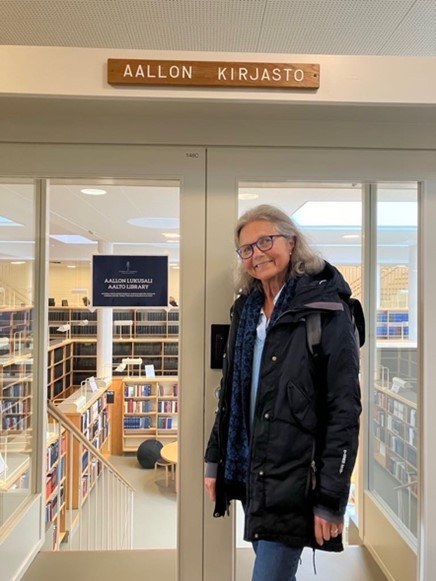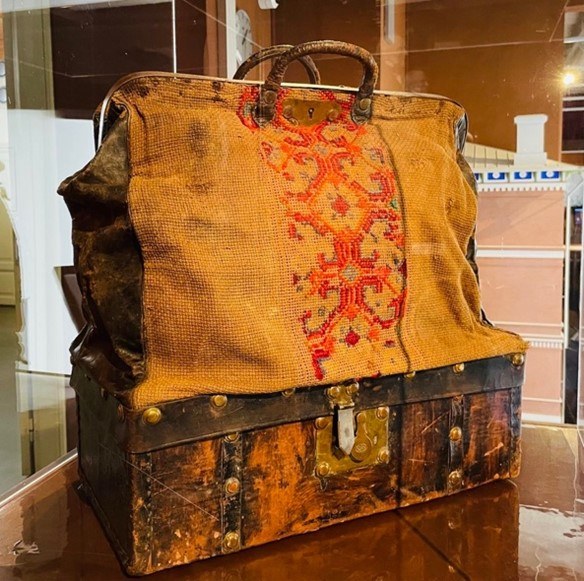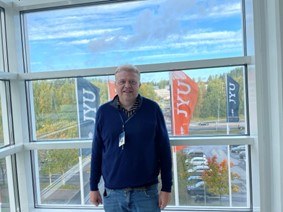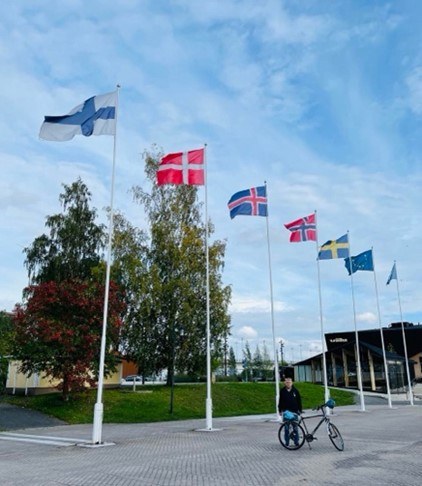Anna Öhman from Karlstad University visiting SOLKI on September 24-26 2024 in Jyväskylä: "Strength in JYUnity – JYUNITED SCIENCE"
University lecturer Anna Öhman from Karlstad University, Sweden, carried out an Erasmus + visit to the Centre for Applied Language Studies at the University of Jyväskylä on 24-26 September 2024.
Anna came to CALS to job shadow Petteri Laihonen in his Citizen Science projects. Petteri and Anna have been working together in a Future Challenges in the Nordics project, where they have been conducting Citizen Science projects in schools with 15 year-olds in the Nordic countries. During the visit, we also met the team doing Citizen Science at the Mankola school in Jyväskylä. A guided tour by Mankola pupils to the school was among the highlights of the visit. We also worked on an article and a book in preparation by the Nordic project.
Read Anna’s report of the visit:
2024 September 24-26 in Jyväskylä – Strength in JYUnity – JYUNITED SCIENCE
My name is Anna Öhman, I hold a Pd.D. in educational work with the focus on vocational didactics and work as a senior lecturer at Karlstad University in Sweden, teaching at the advanced level in special education and principal education for cultural school and folk high school principals. I have researched assessment and feedback practices as well as students’ experiences of special needs support. Today, my research is largely focused on leadership and management issues within folk high schools and cultural schools.


Through Erasmus + staff mobility for training, I had the opportunity to visit the University of Jyväskylä in September, invited by Petteri Laihonen (Centre for Applied Language Studies). We are both part of the Nordic research project “Nordic basic schools as past, present and future sites for solving the challenges of making diverse inclusive knowledge-based societies,” where researchers from Norway, Denmark, Sweden, and Finland study the Nordic school model from both historical and contemporary perspectives. In one of the substudies of the project, we use Citizen Science (CS) as a methodology. Given Petteri’s years of experience with this participatory and collaborative approach, I was interested in learning more about CS both in theory and practice. The aim of CS within research is to start from the local context and studied practice with its participants (students and teachers), to find common research questions and topics. The idea is to lead to impactful actions that change the practice in some way.
On the first day, I accompanied Petteri and Maria Kautonen (Department of Language and Communication Studies) to a school in Mankola, a residential district about 5 km outside Jyväskylä centre. It is a comprehensive school with around 700 students from grade 1 to 9. The school has two buildings, one with a history dating back to 1931 when it was established as a Housewife school for training women in various household tasks. The associated greenhouse is still there and in use. The newer school building is from the 90s. The school has been participating since 2020 in CS projects that Petteri runs together with a team of researchers and teacher students from JYU. The theme for the new project starting this fall is Linguistic Wellbeing. Pupils together with the teachers at the local school will investigate aspects of this topic in collaboration with teacher-students and researchers from JYU and give presentations of the findings in the school auditorium.


It was exciting to visit the school, and we were guided to different classrooms by a group of pupils from grades 7 and 8 who explained in English what subjects were taught in the various years and what choices they could make. We also met teachers and received their descriptions of the teaching and subjects. We were also invited to lunch together with the pupils and a teacher. The atmosphere in the dining hall was calm and pleasant; the food was simple but nutritious. Petteri explained the schools’ financial cutbacks, which are also something we have in Sweden.
Linguistically interesting was that the teachers gladly spoke Swedish while the pupils preferred to speak English, even if they had studied the language only for a few years. I got the impression that Swedish is a ‘foreign language’ which it rightly is, and I understand very well that English weighs heavier when a language other than Finnish is spoken.
The following impressions are with me from the days in Jyväskylä and JYU:
-
A gorgeous and multisided campus with unique architecture, art, furniture, and libraries as well as numerous restaurants for students and staff.
-
An international and extroverted staff group at CALS that punctually gathered for morning and afternoon coffee in the common area on the fifth floor in Agora.
-
In the university museum’s exhibitions, I found roots in Finland’s successful and admired teacher education and school system with seminars where women were early included among the students. Impressions were taken from progressive educators of their time such as Fröbel and Pestalozzi. Even the craft subject was considered an important part of the education.
-
Spontaneous conversations with staff also provided insight into interesting and current research, such as Dynamic assessment in which researchers at the Centre for Applied Language Studies are central.
-
Last but not least, I gained a deeper insight into Citizen Science as a methodology, which I will use in an upcoming research project within the Swedish Cultural School in Stockholm, where Young Leadership is the focus. It is an important step in incorporating students’ perspectives and participation.